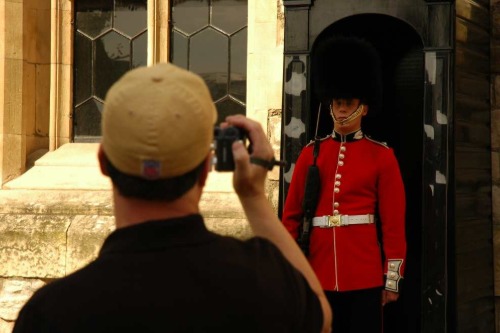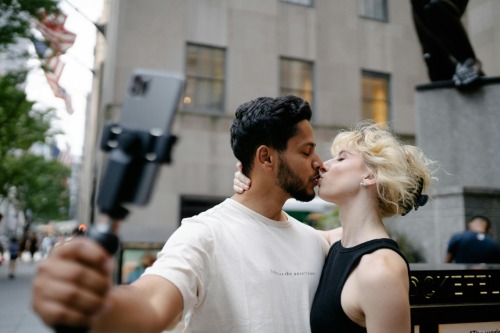1. Taking Photos of Government Buildings in the UAE

In places like Dubai and Abu Dhabi, snapping a photo of a striking building can quickly land you in hot water. The UAE has strict laws about photographing government buildings, military sites, and even certain public infrastructure. American tourists have been detained or questioned for unintentionally taking “sensitive” pictures. It’s easy to forget that not all countries view photography the same way.
This issue comes up often because the architecture is genuinely stunning—modern, futuristic, and totally Instagram-worthy. But a harmless selfie in front of the wrong structure could trigger security concerns. Tourists have had their phones searched or images deleted on the spot. When the laws are that strict, a vacation pic can become an unexpected legal drama.
2. Jaywalking in Germany

In many parts of the U.S., jaywalking is common and rarely enforced. But in Germany, especially in cities like Berlin or Munich, stepping into the street against the pedestrian light—even if no cars are coming—can get you fined. German culture places a strong emphasis on rules and order, so even minor infractions draw attention. American tourists have been scolded by locals or ticketed by police for simply crossing early.
What seems like a casual habit in the U.S. can be viewed as reckless and disrespectful abroad. Some parents will even publicly call out jaywalkers in front of children to set a proper example. Tourists are often shocked when they’re treated like lawbreakers over something so minor. But in Germany, breaking the pedestrian signal is a genuine no-no.
3. Chewing Gum in Singapore

Singapore’s anti-gum law is infamous, but many American tourists still get caught off guard. Chewing gum was banned in 1992 to help keep the city clean and prevent damage to public property. While bringing in a pack or two for personal use is technically allowed, selling or importing it without a permit is still illegal. That’s enough to get some travelers questioned or fined at customs.
What might seem like a quirky local rule can turn stressful fast. Tourists have had gum confiscated or been warned by authorities for simply popping a piece during a walk. The clean streets are no accident—it’s strict laws like this that help keep them that way. But to the average American, it can feel like being criminalized for fresh breath.
4. Wearing Camouflage in the Caribbean

In several Caribbean countries like Barbados, Jamaica, and Trinidad & Tobago, wearing camouflage is strictly reserved for the military. That means tourists who show up in camo shorts or hats—often a fashion choice back home—can face fines or even confiscation of clothing. It’s not about style, but about maintaining respect and authority for armed forces. Ignorance of this law has led to more than a few awkward encounters.
It might feel like an overreaction to some, but the rule stems from concerns about impersonation and public safety. Tourists have been stopped by police and asked to change, or even had to buy new clothes on the spot. American travelers who equate camo with camping or streetwear often don’t realize the seriousness. But once you’re being searched or cited, it stops being a fashion statement.
5. Swearing in Public in Australia

Despite its laid-back image, Australia has local laws that prohibit offensive language in public spaces. These vary by state, but swearing in places like Queensland or New South Wales can lead to fines or even arrest. American tourists sometimes forget that a loud, expressive vent in public might not be taken lightly. The law isn’t about being prudish—it’s about keeping public spaces civil.
There have been cases where travelers were ticketed for dropping f-bombs during arguments or after getting lost. Even common expressions of frustration can be interpreted as disorderly conduct. While some Aussies do curse casually, doing so loudly or aggressively changes the game. It’s a reminder that tone and context matter just as much as the words themselves.
6. Feeding Pigeons in Venice

Feeding birds might seem like a charming pastime, but in Venice, it’s actually illegal. The city banned the practice in 2008 to protect its historic architecture and reduce the massive cleanup costs. Many American tourists, unaware of the law, still toss breadcrumbs in Piazza San Marco and end up facing hefty fines. What feels like a Disney moment can quickly sour.
It’s a rule rooted in practicality—pigeon droppings damage stonework and attract even more birds. Street signs warn tourists, but they’re easy to miss in the excitement of sightseeing. Tourists have been approached by police for doing something they thought was innocent. In Venice, feeding the birds is less Mary Poppins and more municipal offense.
7. Public Displays of Affection in India

While not technically illegal everywhere, public displays of affection in India can lead to legal trouble or serious social backlash. There have been documented cases where couples—especially foreigners—were fined or detained for kissing in public. American travelers often underestimate how conservative social norms are in certain regions. What’s romantic at home might be seen as indecent abroad.
This isn’t about hand-holding or light contact, which is usually tolerated. But extended hugs, kissing, or cuddling in public parks can provoke outrage or even legal action. Tourists have been the subject of viral videos or police complaints for what they thought were harmless gestures. Respecting local customs can help avoid a surprising run-in with the law.
8. Using a Drone in Morocco

Flying a drone might be a favorite hobby or a way to capture epic vacation footage, but in Morocco, it’s flat-out illegal without prior approval. Customs officials often confiscate drones on arrival, and tourists have been fined or had their equipment permanently seized. American travelers sometimes assume drone use is okay unless explicitly banned, but that logic doesn’t fly here. The restrictions are about privacy and national security concerns.
It’s not just a bureaucratic formality—several tourists have faced police questioning or delays at the airport over undeclared drones. Even attempting to fly one in remote areas can draw unwanted attention. What starts as an aerial adventure can end with a frustrating legal mess. In Morocco, it’s best to leave the drone at home or go through the proper (and difficult) authorization process.
This post 8 International Laws That Accidentally Made American Tourists Look Like Criminals was first published on American Charm.


